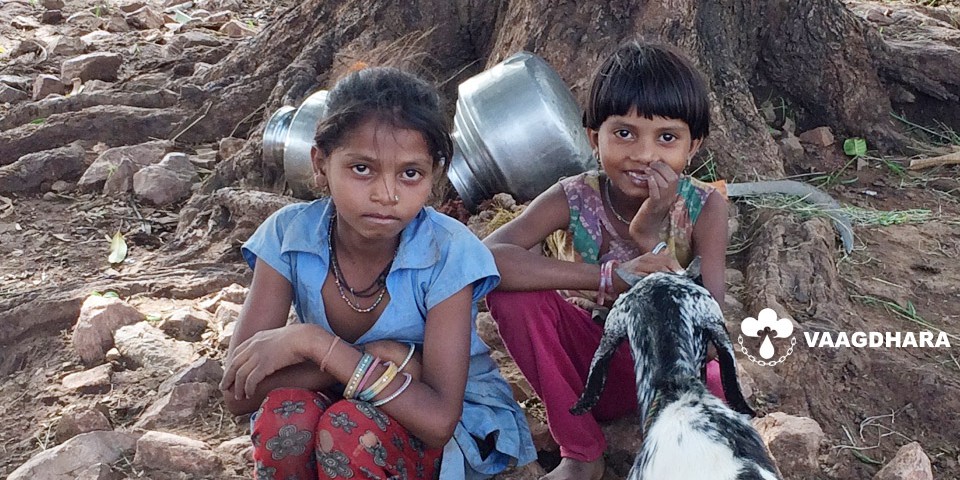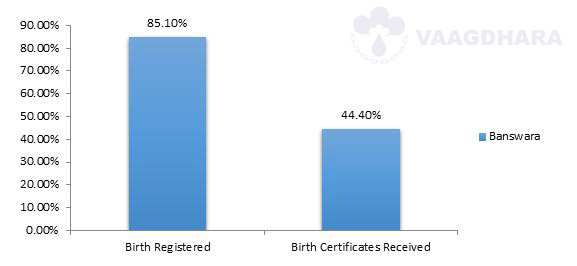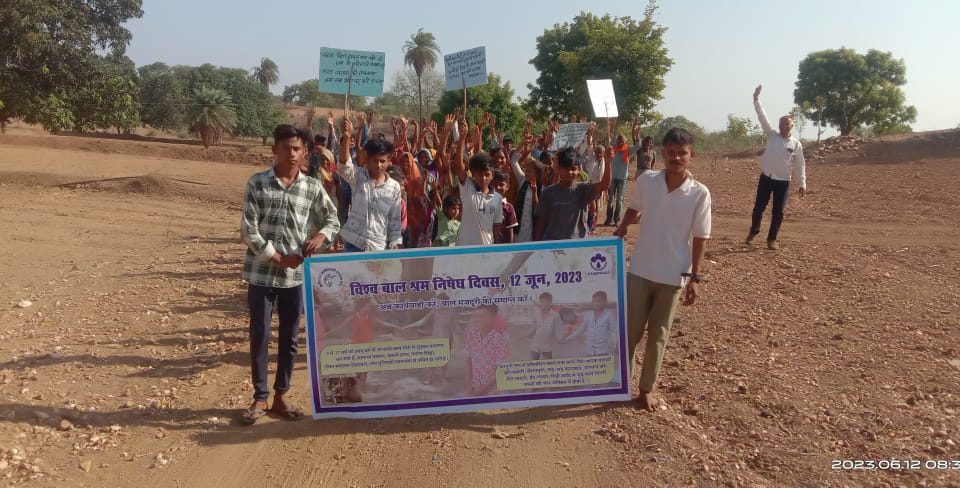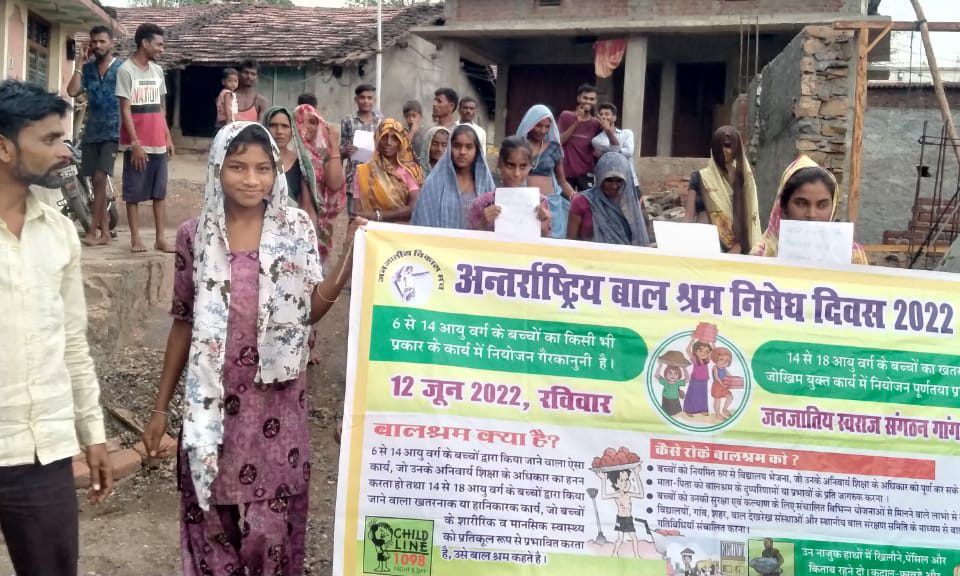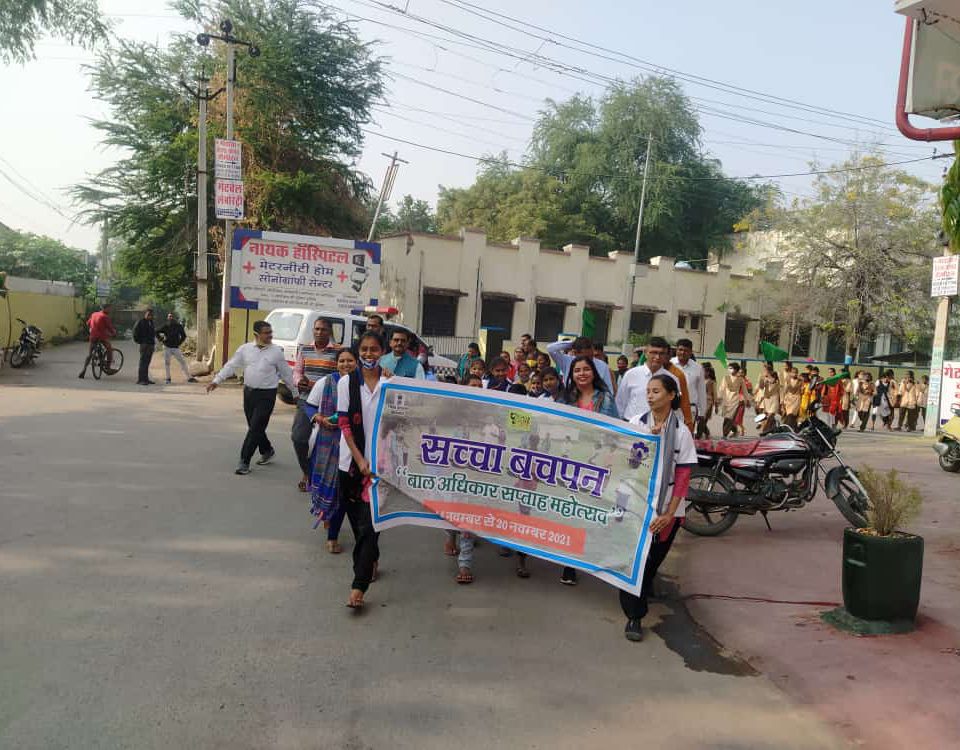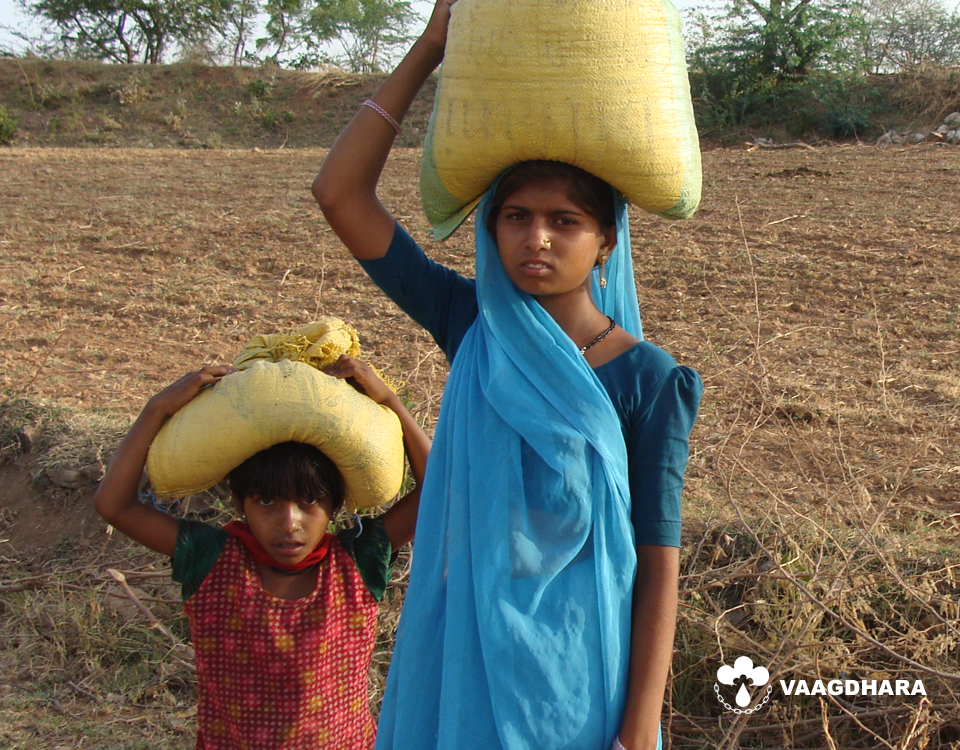
A Campaign against Child Migration & Child Labour
August 23, 2016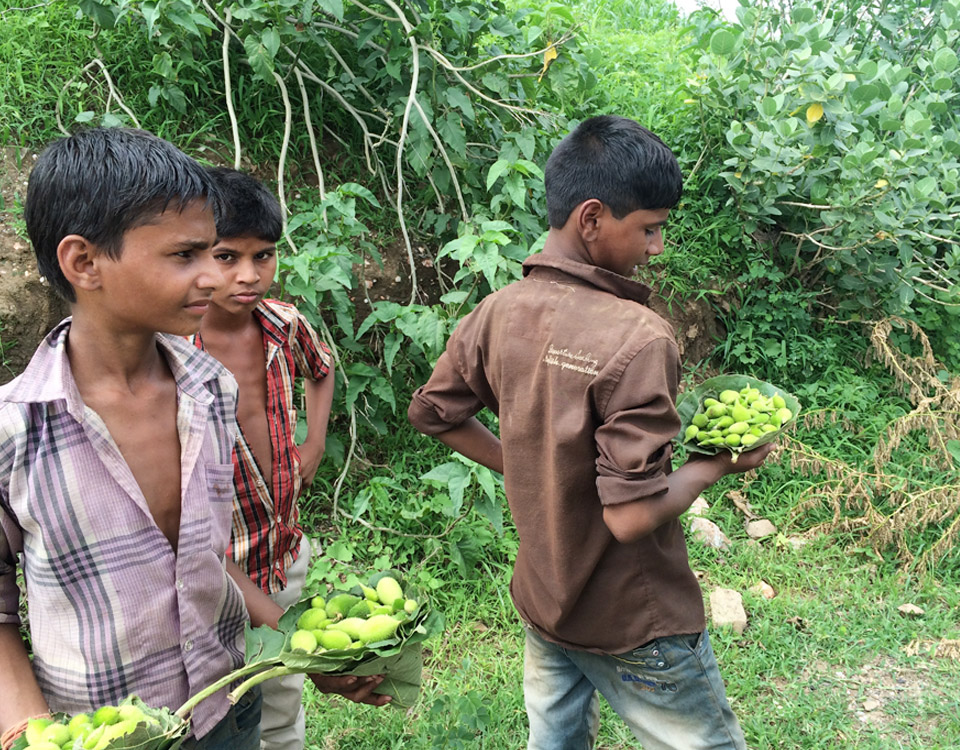
Vaagdhara asks for a sturdier Child Labour (Prohibition and Regulation) Amendment Act
September 13, 2016Recently, I have published a paper on ‘Birth Registration in Banswara District of Rajasthan’, throwing light on the rights of children to birth registration, the current statistics in the state of Rajasthan, gap in percentage of births registered and the percentage of birth certificates, and to what level the organizations responsible are involved in addressing this critical issue.
Before getting into the deep details of the paper, I would like to share as in why I volunteered to write a whole paper on this issue. We – as a part of the Vagdhara organization – have been long fighting to protect child rights in the Banswara tribal region, and ensure their protection against all kinds of abuse, exploitation and violence. But, a major hurdle that was disturbing the whole mission of creating an enabling environment for children’s growth and development was – no or delayed registration of birth.
It is notable that children without birth certificates exist nowhere in the law, and are vulnerable to left behind in the society, or being shut out altogether. And thus, they face major challenges in accessing education, health facilities and social welfare, as compared to those who have registered births and certificates. We intensively worked to bring the issue to the attention of the Rajasthan Government officials, but in vain. I started to feel uneasy considering the fact that without birth registration, children are shut out of the society. So, to appease my restless mind, I decided to dig out the complete facts about various Acts, ground realities, and responsible institutions for getting the birth registered, challenges, and the measures for way forward.
My findings say that in India birth registration is recognized as one of the first rights of child and is vital to acknowledging the rights and practical needs of all children, under the Registration of Births and Deaths (RBD) Act, 1969. It is a permanent and certified record of the child's existence. Despite significant efforts to improve the Civil Registration System, especially during the past decade, the overall level of registration of births still falls short by about 25 percent. Now particularly talking about Rajasthan, Rajasthan Registration of Births and Deaths Act (Rajasthan RBD Act) specifies penalties and timelines for the reporting of all births and deaths.
Also, the Director of Economic & Statistics had been appointed as the Chief Registrar of Births & Deaths, and to help him in his work of registration, various representatives at district, municipality, panchayat samiti and gram panchayat level have been appointed.
Coming to the Banswara district, situated in the southernmost part of Rajasthan, this district largely populated by tribals, falls under high focused category of districts; in the matter of health and family welfare. The indicators of achievements and targets in the districts are not at par with the state average.
In Banswara district, there exists a huge gap in the percentage of births registered and the percentage of children who received birth certificates. The graph you see below clearly reflects as only half of the registered children received Birth Certificates in the area.
Before getting into the deep details of the paper, I would like to share as in why I volunteered to write a whole paper on this issue. We – as a part of the Vagdhara organization – have been long fighting to protect child rights in the Banswara tribal region, and ensure their protection against all kinds of abuse, exploitation and violence. But, a major hurdle that was disturbing the whole mission of creating an enabling environment for children’s growth and development was – no or delayed registration of birth.
It is notable that children without birth certificates exist nowhere in the law, and are vulnerable to left behind in the society, or being shut out altogether. And thus, they face major challenges in accessing education, health facilities and social welfare, as compared to those who have registered births and certificates. We intensively worked to bring the issue to the attention of the Rajasthan Government officials, but in vain. I started to feel uneasy considering the fact that without birth registration, children are shut out of the society. So, to appease my restless mind, I decided to dig out the complete facts about various Acts, ground realities, and responsible institutions for getting the birth registered, challenges, and the measures for way forward.
My findings say that in India birth registration is recognized as one of the first rights of child and is vital to acknowledging the rights and practical needs of all children, under the Registration of Births and Deaths (RBD) Act, 1969. It is a permanent and certified record of the child's existence. Despite significant efforts to improve the Civil Registration System, especially during the past decade, the overall level of registration of births still falls short by about 25 percent. Now particularly talking about Rajasthan, Rajasthan Registration of Births and Deaths Act (Rajasthan RBD Act) specifies penalties and timelines for the reporting of all births and deaths.
Also, the Director of Economic & Statistics had been appointed as the Chief Registrar of Births & Deaths, and to help him in his work of registration, various representatives at district, municipality, panchayat samiti and gram panchayat level have been appointed.
Coming to the Banswara district, situated in the southernmost part of Rajasthan, this district largely populated by tribals, falls under high focused category of districts; in the matter of health and family welfare. The indicators of achievements and targets in the districts are not at par with the state average.
In Banswara district, there exists a huge gap in the percentage of births registered and the percentage of children who received birth certificates. The graph you see below clearly reflects as only half of the registered children received Birth Certificates in the area.
The challenges faced in getting the birth certificates for children whose birth are already registered are many, with high cost and lengthy process of birth registration topping the list. Lack of appropriate channels, proper functioning of the government bodies, geographical inaccessibility in rural tribal areas, among others.
To strengthen the ability to support birth registrations by NGOs like Vaagdhara, some way forward strategies include - adequate budget allocation by the state government for Civil Registration Activities, adequate attention by the concerned department for training and manpower development, synergies with NGOs to get the children registered who are not captured through the official system.
In a nutshell, birth registration allows a child to have an identity, a nationality, which in turn allows the child to be eligible for basic and advanced necessitates including opening a bank account, a voter identity, find employment, along with access to simple health and education services.
Vaagdhara, is all geared towards reinforcing child protection systems and reduce hurdles to the registration of every child in the tribal region of Banswara district. And I truly believe that with the help of administration, together we can, and we will!
To strengthen the ability to support birth registrations by NGOs like Vaagdhara, some way forward strategies include - adequate budget allocation by the state government for Civil Registration Activities, adequate attention by the concerned department for training and manpower development, synergies with NGOs to get the children registered who are not captured through the official system.
In a nutshell, birth registration allows a child to have an identity, a nationality, which in turn allows the child to be eligible for basic and advanced necessitates including opening a bank account, a voter identity, find employment, along with access to simple health and education services.
Vaagdhara, is all geared towards reinforcing child protection systems and reduce hurdles to the registration of every child in the tribal region of Banswara district. And I truly believe that with the help of administration, together we can, and we will!
Subscribe to our newsletter!


